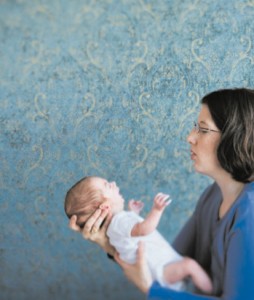
Independent of the circumstances, a child’s death is always brutally difficult to process. It’s counterintuitive. And facing Cooper’s parents for the first time after his passing was strangely difficult for me. When he was alive I always had a plan. Every sign, symptom, and problem had a systematic approach. But when faced with the most inconceivable process, I found myself awkwardly at odds with how to handle the dialog. In a hospital my calculated clinical role has a way of sheltering me from a parent’s reality. At a funeral it’s different.
Patients like Cooper offer the most unusual landscape for thinking. They force us to look at what we’ve done and more importantly what we failed to do. At Cooper’s memorial service yesterday, Father Gerald Sevick‘s quote of Isaiah 11:16 was timely for me: And a child will lead them. These children teach us. And when you look at these experiences in just the right way, they represent a unique gift.
Disney interviewed me in 2007 in a feature piece on colic. Pictured above with his mother Sarah, Coop was one of our models.